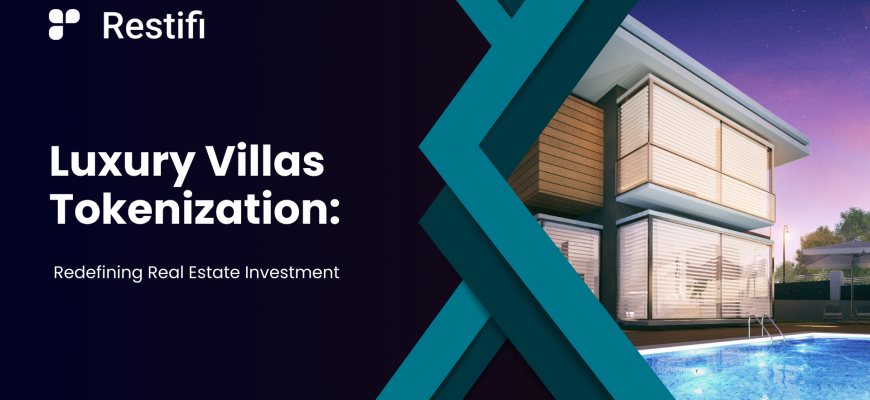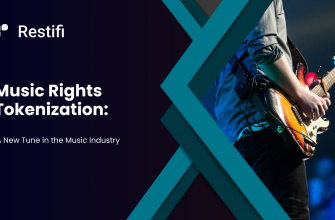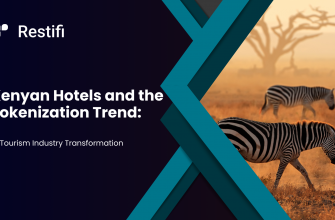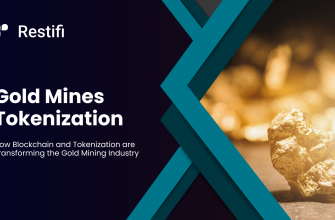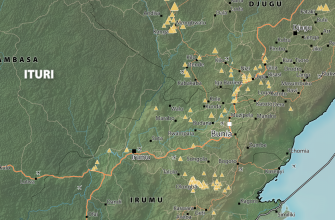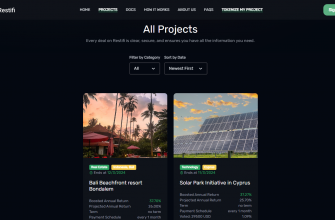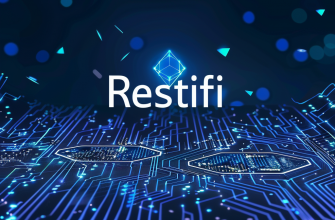In the ever-evolving world of real estate, one innovation is making waves like no other – real estate tokenization. This revolutionary development is redefining the concept of property ownership, ushering in an era of accessibility, transparency, and liquidity. But how does it work, and why is it poised to change the face of real estate investment? Let’s delve deeper.
What is Real Estate Tokenization?
Real estate tokenization is the process of converting physical property into digital assets, represented as tokens on a blockchain. Each token corresponds to a fraction of ownership in the property, allowing investors to purchase real estate in increments rather than as a whole.
def tokenize_real_estate(property_value, token_value):
return property_value / token_value
The above code is a simplistic representation of how property value can be broken down into individual tokens.
This groundbreaking approach opens up the high-stakes world of real estate investment to a wider demographic. Investors no longer need to have vast sums of capital to enter the market; they can now buy a piece of a property that suits their investment capabilities.
Fractional Ownership: A Game Changer
One of the key advantages of real estate tokenization is fractional ownership. In traditional real estate investment, purchasing a property means buying the whole asset. But tokenization breaks down this barrier, allowing properties to be divided into numerous digital tokens.
Imagine a luxury villa on the beachfront. Traditionally, the villa would be owned by a single investor or a small group of investors. But with tokenization, the villa can be divided into multiple tokens, each representing a fraction of the property. This means that hundreds or even thousands of investors can collectively own the villa, each holding a piece of the digital pie.
This democratization of property ownership diversifies the real estate market, enabling more people to participate in lucrative property investments.
The Power of Liquidity
Liquidity has always been a challenge in the real estate market. Selling a property can take months, even years, tying up capital and limiting investor flexibility. But tokenization changes all that.
With tokenized real estate, ownership becomes as fluid as a digital transaction. Tokens can be bought, sold, and traded on secure blockchain platforms with just a few clicks. This enhanced liquidity transforms real estate into a dynamic asset class, providing investors with the freedom and flexibility to manage their investments according to their needs.
Democratizing the Global Real Estate Market
Tokenization is not confined by geographical boundaries. It opens up the global real estate market, allowing investors from anywhere in the world to purchase tokens representing properties in any location. This is a game-changer for real estate investment, enabling seamless cross-border transactions and democratizing access to international property markets.
The Rise of Blockchain in Real Estate
Blockchain technology is the driving force behind real estate tokenization. This decentralized digital ledger provides a transparent and secure platform for recording and verifying transactions. Each token transaction is recorded on the blockchain, providing an immutable record of ownership.
Blockchain’s inherent security and transparency make it an ideal platform for real estate transactions. It eliminates the need for intermediaries, reduces the risk of fraud, and ensures the integrity of property records.
The Future of Real Estate Investment
The convergence of real estate and blockchain technology is rewriting the rules of property investment. Tokenization is more than just a trend – it represents a fundamental shift in the way we invest in real estate.
As we move forward into this exciting new era, the potential of tokenized real estate is limitless. From residential properties to commercial real estate, tokenization is set to redefine the industry, offering a new world of opportunities for investors.
Embracing the Future of Real Estate
The future of real estate investment is here, and it’s tokenized. By leveraging the power of blockchain technology and the concept of fractional ownership, real estate tokenization is breaking down barriers and creating a more inclusive, transparent, and liquid market.
Whether you’re an experienced investor or new to the real estate game, tokenization offers a unique opportunity to diversify your portfolio, access global property markets, and participate in the future of real estate investment.
Tokenizing Luxury Villas: An Example
To understand the potential of real estate tokenization, let’s consider a specific example: a luxury villa in Dubai.
In the traditional real estate market, purchasing this villa would require a substantial investment, likely in the range of several million dollars. But through tokenization, the villa can be divided into thousands of tokens, each representing a fraction of the property’s value. Investors can then purchase these tokens, effectively buying a piece of the villa at a much lower cost.
This opens up the investment opportunity to a much wider audience, allowing more people to participate in the lucrative luxury real estate market. Furthermore, token holders can sell their tokens on the open market, providing a level of liquidity that is rarely seen in traditional real estate investment.
Conclusion
In conclusion, real estate tokenization is set to revolutionize the property market. It democratizes access to property investment, enhances liquidity, and leverages blockchain technology’s transparency and security. Whether it’s a luxury villa in Dubai or a commercial property in New York, tokenization offers a new and exciting way to invest in real estate.
As we look to the future, it’s clear that tokenization will play a crucial role in shaping the real estate market. So whether you’re an investor looking to diversify your portfolio or a property owner seeking new ways to monetize your assets, it’s time to explore the possibilities of real estate tokenization.

